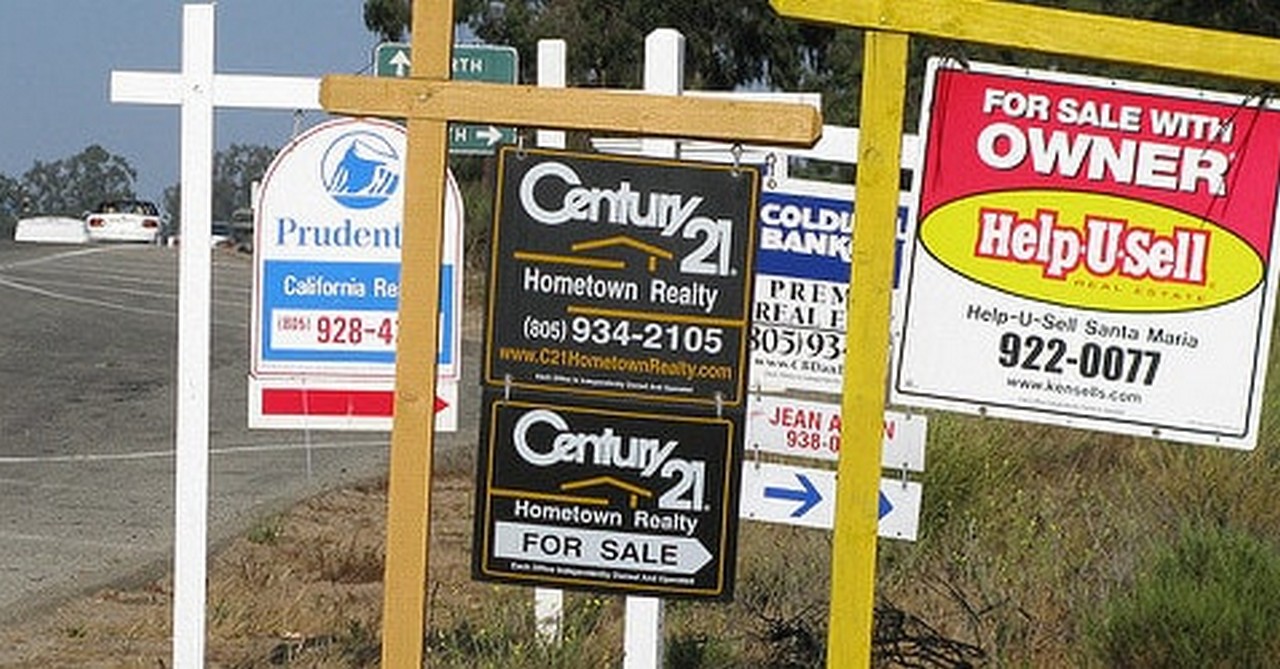Table of Contents
As mortgage charges proceed their ascent towards 6%, increasingly more of us are speaking housing market crash.
However excessive rates of interest aren’t actually a catalyst for a crash, particularly if the excessive charges aren’t actually excessive.
Emphasis on “actual,” as in inflation-adjusted. All the pieces has gone up in worth, and wages must also be rising.
This implies a better mortgage charge isn’t even a roadblock, or actually as unhealthy because it appears.
And since charges stay traditionally low, when you issue inflation, they might nonetheless be seen as a screaming deal.
Excessive Mortgage Charges Don’t Crash Housing Markets
I’ve mentioned it numerous occasions, and I’ll repeat it once more. Larger mortgage charges don’t robotically decrease residence costs. Or decrease them in any respect.
If one goes up, the opposite doesn’t go down. And vice versa. It’s potential each can transfer in tandem, or reverse each other, primarily based on many different components.
So those that have been watching 30-year fastened mortgage charges completely surge from beneath 3% to just about 6% should be beside themselves.
How might residence costs not fall, or on the very least, not proceed to rise? This is unnecessary.
Why would residence patrons proceed to pay such outrageous costs now that rates of interest aren’t at file lows?
A part of the reply is they need/want shelter, so that they’re prepared to pay “prime greenback” for it.
One more reason is it’s nonetheless not that costly when you think about inflation and rising wages for these residence patrons.
The opposite key issue continues to be a provide/demand imbalance, with method too little stock obtainable to fulfill demand.
Oh, and there are many patrons paying all-cash for his or her residence buy, which has nothing to do with mortgage charges.
All of this stuff have stored the housing market buzzing by means of spring, seemingly defying the expectations of housing bears and naysayers.
Don’t Examine At the moment’s Housing Market to the One Previous the Nice Recession
There’s a saying that historical past doesn’t repeat itself, however it rhymes. The origins of that quote or comparable are exhausting to find out.
However the normal thought is that we use the previous to foretell what’s going to occur sooner or later. And we use the same occasion for course.
In the case of the housing market, anybody who’s skeptical of proper now’s wanting again to the Nice Recession.
Particularly, the housing market from round 2006 to 2008. Sadly, that’s a really excessive comparability, therefore its identify.
The Nice Recession befell between 2007 and 2009, whereas the Nice Melancholy occurred between 1929 and 1939.
These have been each extreme financial downturns, and as such, have been spaced nicely aside from each other.
This implies the possibility of one other occasion of that magnitude anytime quickly is fairly low.
Nonetheless, we’ve loved many fruitful years currently, so a recession or downturn of some form is definitely within the playing cards.
The query is how unhealthy will it’s this time round?
Ought to We Take a look at the Late Nineteen Seventies and Early Nineteen Eighties for Future Steerage?
As an alternative of evaluating at present’s housing market to the one which preceded the Nice Recession, we’d need to look again a bit additional.
The housing market in 2006 was fueled by an abundance of acknowledged earnings and no-doc adjustable-rate mortgages, tons of money out mortgages, and nil down mortgages.
None of that’s current at present, although comparatively innocent hybrid ARMs just like the 5/1 ARM are starting to make extra of an look.
Now if we return so much additional in historical past, we’d discover a higher instance for our historical past “rhyme.”
I’m speaking in regards to the late Nineteen Seventies and early Nineteen Eighties, when inflation was tremendous excessive and mortgage charges spiked.
The previous timers love speaking about how excessive mortgage charges have been again then. They scoff at your 6% mortgage charge at present.
They usually have good motive to scoff – the 30-year fastened climbed as excessive as 18.45% in October 1981, per Freddie Mac information.
Just some years earlier, it was as low as 9.01%, so mortgage charges actually doubled. And did so at very excessive ranges.
Whereas our mortgage charges are nonetheless ridiculously low by comparability, they’ve almost doubled as nicely in only a matter of months.
Moreover, demographics are very favorable for residence shopping for, with 45 million Individuals hitting the first-time residence purchaser age of 34 between 2017 and 2027.
That is just like what was occurring again then, as Invoice McBride of Calculated Danger factors out.
As you’ll be able to see from his chart above, there’s been a really comparable year-over-year change in mortgage charges on a proportion change foundation.
The one huge distinction between then and now could be stock. I say would possibly as a result of he doesn’t have the info, nor do I.
However we all know housing stock is at file lows at present, so chances are high at present’s housing market is much more insulated than the late 70s/early 80s market.
So what’s going to occur to residence costs? Will we lastly get our huge, overdue crash?
Actual Residence Costs Could Fall, However Nominal Costs Could Not
Okay, so it could be higher to match at present’s housing market with the one seen within the late 70s/early 80s.
That is smart given the inflation and rate of interest atmosphere, although bear in mind historical past doesn’t repeat itself, it merely rhymes.
This offers us with clues as to what occurs subsequent, however nothing definitive.
McBride’s take, primarily based on analyzing that point interval, requires a decline in each housing begins and new residence gross sales.
We may see a rise in housing stock, although as talked about, it’s at the moment at file low ranges.
Right here’s the kicker – nominal residence costs may not even go down through the subsequent “housing bust.”
By nominal, I imply costs that aren’t adjusted for inflation. In order that overpriced $500,000 residence could be value $550,000 in a pair years.
That’s fairly wild if you take a look at how a lot residence costs have already risen.
Nonetheless, actual residence costs (these adjusted for inflation) might decline, as they did from 1979 (after they peaked) till 1982.
Again then, they fell 11% in actual phrases, however nominal costs “elevated barely” attributable to inflation.
In different phrases, chances are you’ll need to mood your expectations with regard to an enormous housing market crash.
Sure, residence costs are “loopy excessive,” however so is the worth of all the things else.
And hundreds of thousands of Individuals are having fun with very low, fastened housing funds which can be solely getting cheaper as costs and rates of interest rise.
So a flood of distressed gross sales and foreclosures possible isn’t within the playing cards because it was a decade in the past.
For these of you ready on the sidelines searching for a hearth sale, it could not occur.
And people who merely need to purchase a house may not see any main aid.
This isn’t to say it is best to panic-buy a home, however ready for some huge worth reduce may not be a fantastic technique both.



